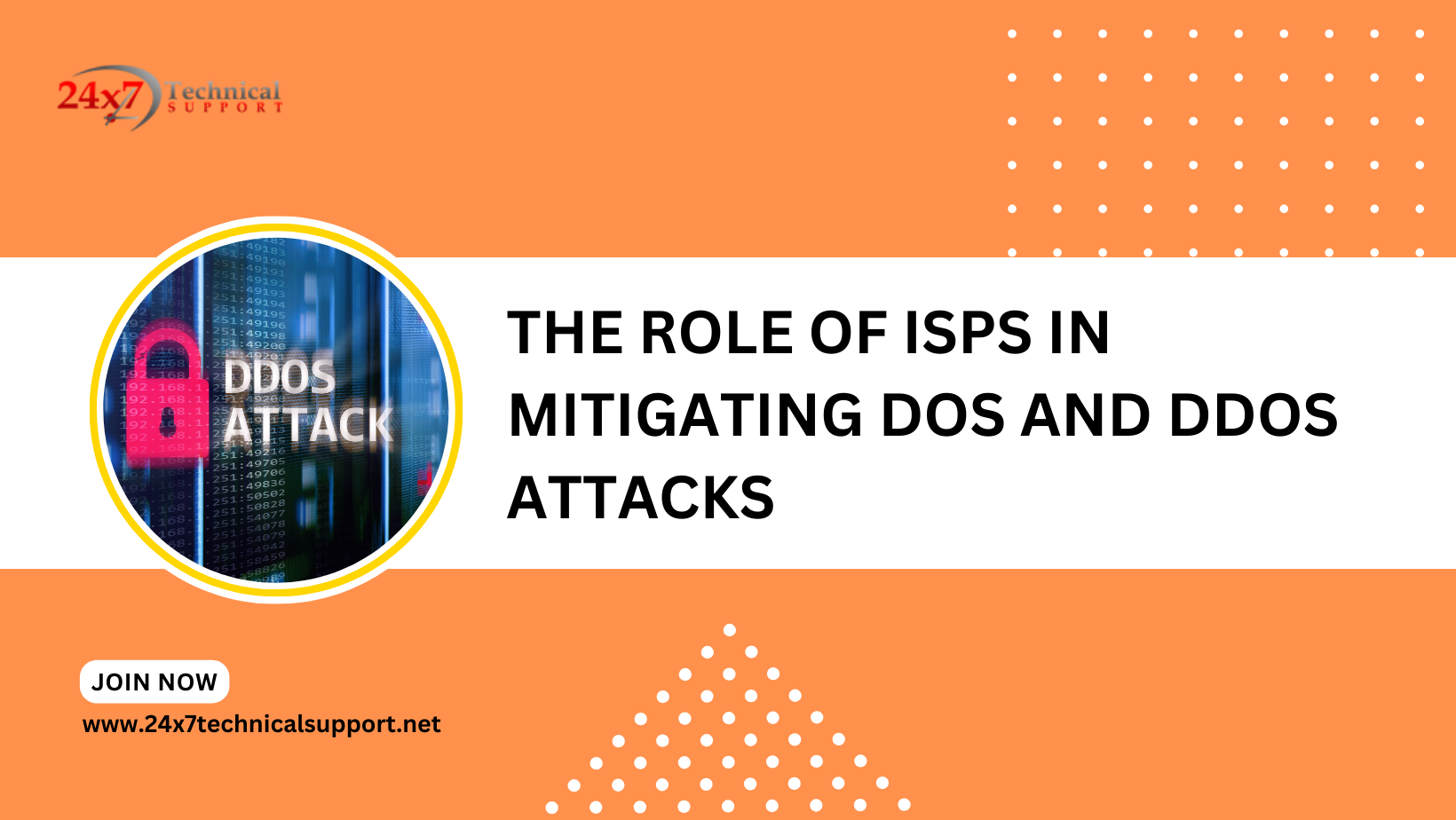
Introduction
In today’s digitally connected world, safeguarding against cyber threats is paramount. Among the most prevalent threats are Denial of Service (DoS) and Distributed Denial of Service (DDoS) attacks. These malicious activities can cripple online services, causing downtime and financial losses. In this article, we will delve into the indispensable role that Internet Service Providers (ISPs) play in mitigating these threats.
Understanding DoS and DDoS Attacks
Before we explore the role of ISPs, it’s vital to comprehend the nature of these attacks. A DoS attack aims to render a service or network unavailable by overwhelming it with an influx of traffic. Conversely, a DDoS attack employs a network of compromised devices to flood a target, amplifying the impact. Now, let’s unveil how ISPs serve as the frontline defenders against these assaults.
The Vital Shield: How ISPs Mitigate DoS and DDoS Attacks
Network Traffic Monitoring and Filtering
ISPs employ sophisticated monitoring systems that scrutinize incoming traffic. By analyzing patterns and anomalies, they can swiftly identify and intercept suspicious or excessive data packets. This proactive approach helps in thwarting potential attacks before they can reach their intended targets.
Traffic Segmentation and Load Balancing
To ensure uninterrupted service, ISPs implement traffic segmentation and load-balancing techniques. By distributing incoming traffic across multiple servers and routes, they mitigate the risk of overload during peak usage or attack scenarios. This strategic distribution of resources acts as a robust defense mechanism.
Advanced Firewall Systems
ISPs fortify their networks with state-of-the-art firewall systems. These firewalls act as a barrier between the external internet and their internal infrastructure. They are adept at discerning legitimate traffic from malicious attempts, providing an additional layer of protection.
Redundant Infrastructure and Failover Mechanisms
In the face of an attack, downtime is the enemy. ISPs invest in redundant infrastructure and failover mechanisms. This means that even if one network pathway or server succumbs to an attack, traffic is seamlessly rerouted through alternate channels, ensuring uninterrupted service delivery.
Collaborative Threat Intelligence Sharing
The battle against cyber threats is a collective effort. ISPs actively participate in threat intelligence-sharing communities. By exchanging information about emerging threats and vulnerabilities, they fortify the collective resilience of the digital ecosystem.
Constant Vigilance and Adaptive Measures
Cyber threats evolve, and so do the strategies to combat them. ISPs maintain a vigilant stance, staying abreast of the latest threat landscapes. They continuously update and adapt their security measures, ensuring they remain a step ahead of potential attackers.
FAQs
How do DoS and DDoS attacks differ?
DoS attacks overwhelm a target with traffic from a single source, while DDoS attacks employ multiple sources, making them more potent and challenging to mitigate.
Can smaller ISPs provide the same level of protection?
Smaller ISPs may have fewer resources, but they can still implement robust security measures, often through partnerships with specialized security providers.
Are there ways for individuals to protect against DoS attacks?
While individuals rely on their ISPs for overall protection, they can also implement basic security measures like using firewalls and keeping software up-to-date.
How long does it typically take for an ISP to detect and mitigate an attack?
ISPs leverage advanced monitoring systems for real-time detection, allowing them to respond within minutes, minimizing potential damage.
Can ISPs protect against all types of cyber threats?
While ISPs play a crucial role, a comprehensive cybersecurity strategy should also involve other layers of protection, such as firewalls and antivirus software.
How can businesses choose a reliable ISP with robust security measures?
When selecting an ISP, businesses should prioritize providers with a proven track record in cybersecurity, redundant infrastructure, and proactive threat mitigation.
Conclusion
Internet Service Providers are the unsung heroes in the battle against DoS and DDoS attacks. Their expertise, infrastructure, and proactive measures form an essential line of defense, ensuring the seamless functioning of our digital world. As we navigate the ever-evolving landscape of cyber threats, let’s not underestimate the pivotal role played by ISPs in keeping us connected and secure.
Visit now for dedicated support.